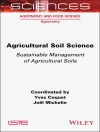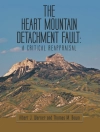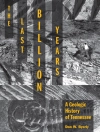This book explores a new realm in data-based modeling with applications to hydrology. Pursuing a case study approach, it presents a rigorous evaluation of state-of-the-art input selection methods on the basis of detailed and comprehensive experimentation and comparative studies that employ emerging hybrid techniques for modeling and analysis. Advanced computing offers a range of new options for hydrologic modeling with the help of mathematical and data-based approaches like wavelets, neural networks, fuzzy logic, and support vector machines. Recently machine learning/artificial intelligence techniques have come to be used for time series modeling. However, though initial studies have shown this approach to be effective, there are still concerns about their accuracy and ability to make predictions on a selected input space.
Tabella dei contenuti
Introduction.- Hydroinformatics and Data based Modelling Issues in Hydrology.- Hydroinformatics and Data based Modelling Issues in Hydrology.- Model Data Selection and Data Pre-processing Approaches.- Machine Learning and Artificial Intelligence Based Approaches.- Data based Solar Radiation Modelling.- Data based Rainfall-Runoff Modelling.- Data based Evapotranspiration Modelling.- Application of Statistical Blockade in Hydrology.
Circa l’autore
Dr Renji Remesan is a research fellow in Cranfield Water Science Institute at Cranfield University in United Kingdom. Dr Remesan’s research interests include non-linear modelling of hydro-metrological time series, artificial intelligence in hydrology, numerical weather modelling and river basin/catchment modelling using physically/ conceptual lumped models and distributed hydrological models. He is an Associate Fellow of the UK Higher Education Academy and editorial member of the Journal of Earth science and Climate change. He holds a Ph D from the University of Bristol and an M.Tech from the Indian Institute of Technology, Kharagpur.
Dr Jimson Mathew received a Ph D in Computer Science from University of Bristol, UK. He has held positions with the Centre for Wireless Communications, National University of Singapore, Bell Laboratories Research (Lucent Technologies) North Ryde, Australia and Royal Institute of Technology (KTH), Stockholm, Sweden. Since 2005, he has been with the Department of Computer Science, University of Bristol, UK. His research interest primarily focuses on Fault-tolerant Computing.












